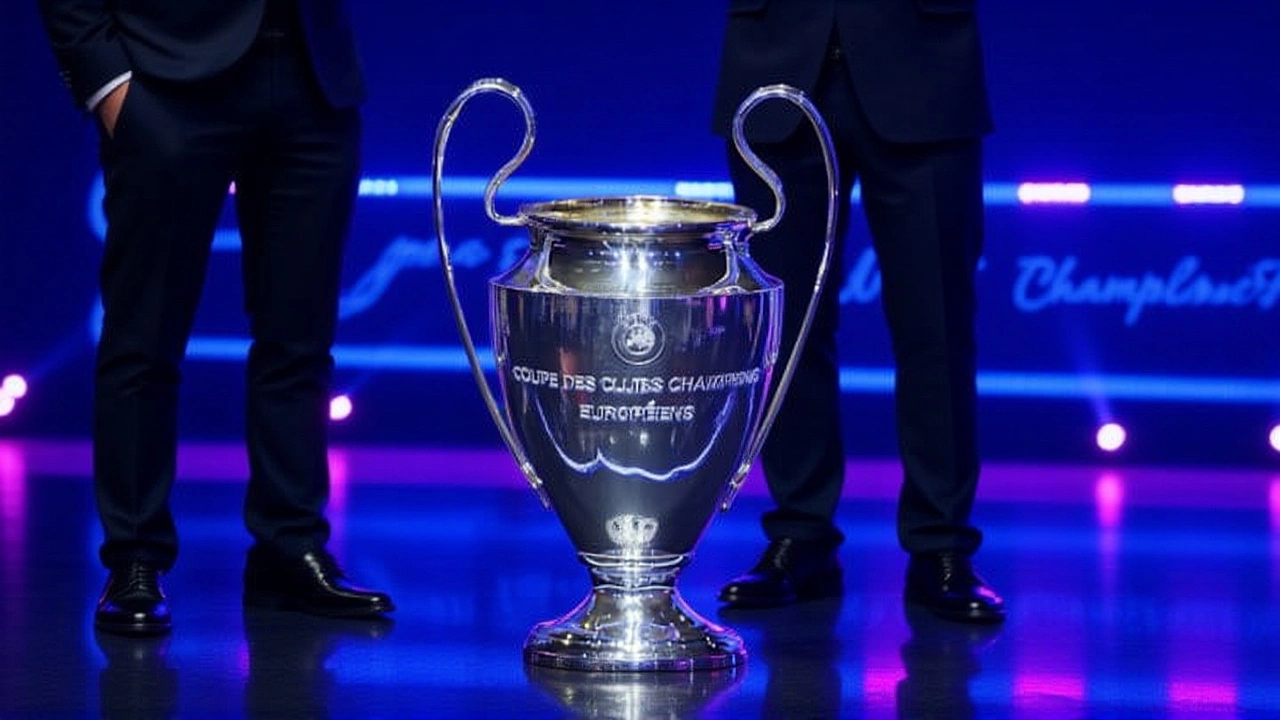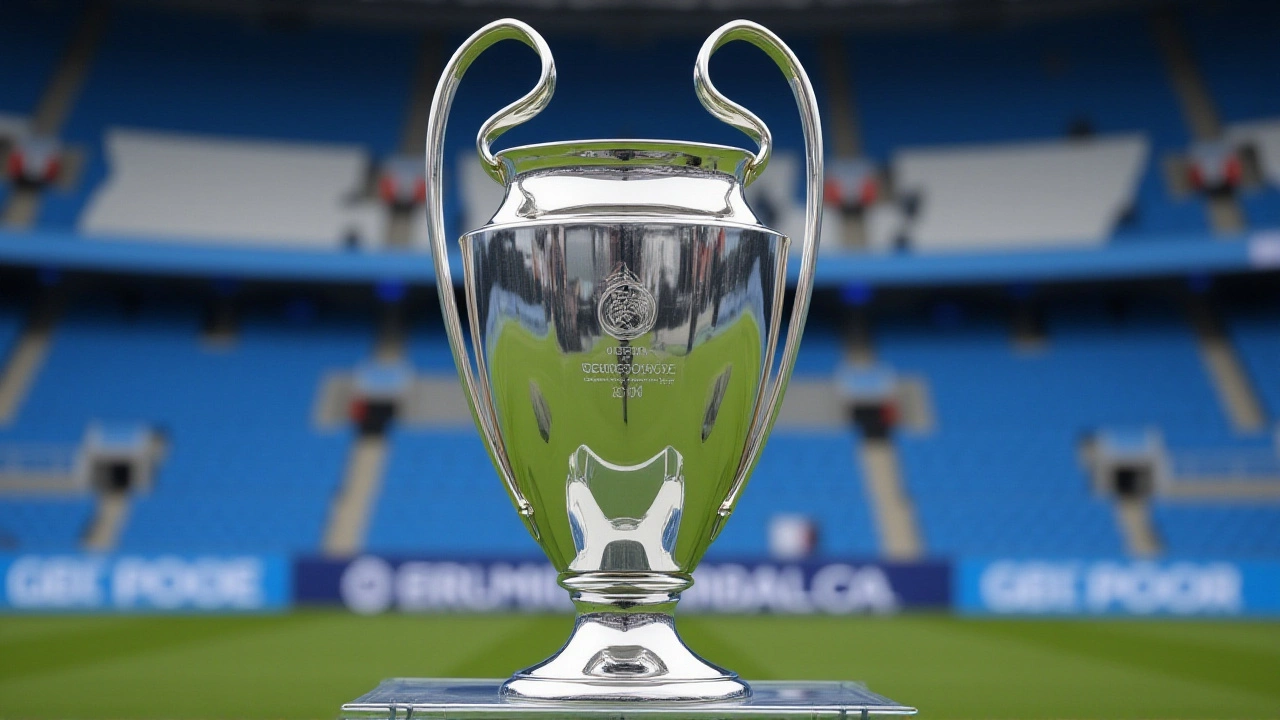The 2025/26 UEFA Champions League kicked off with electric intensity on 16 September 2025, as Arsenal stunned Athletic Club 2-0 at San Mamés, setting the tone for what’s shaping up to be one of the most unpredictable league phases in tournament history. With 36 teams now locked in a single-table format — no more groups, no more predictable fixtures — every match carries knockout-weight stakes. The final, set for 30 May 2026 at the Puskás Aréna in Budapest, isn’t just the end of the road — it’s the climax of a 9-month marathon that’s already rewritten the rules of European football.
The New League Phase: No Groups, Just Chaos
Forget the old group stage. This season, UEFA scrapped the traditional format and replaced it with a 36-team single league table. Each side plays eight matches — four home, four away — against opponents drawn randomly, not by seed. The result? A wild, unpredictable scramble where even mid-table sides can suddenly find themselves in title contention. No more easy fixtures against minnows. No more guaranteed wins against weaker groups. It’s a meritocracy with teeth.
UEFA’s logic? More excitement, more revenue, more chances for underdogs. And it’s working. Union Saint-Gilloise, a Belgian club that barely made it through qualifying, beat PSV Eindhoven 3-1 on Matchday 1. Kairat Almaty from Kazakhstan? They’re still in the hunt. The system rewards consistency, not pedigree.
Key Fixtures That Could Decide Everything
Some clashes aren’t just games — they’re turning points.
- 26 November 2025: Arsenal vs Bayern Munich at Emirates Stadium — a battle of top-four ambitions. A win here could vault Arsenal into the top eight.
- 10 December 2025: Real Madrid vs Manchester City at Santiago Bernabéu — the heavyweight title fight. Two titans, one night, zero room for error.
- 9 December 2025: Barcelona vs Eintracht Frankfurt at Spotify Camp Nou — a potential upset waiting to happen. Frankfurt’s relentless pressing could derail Barça’s resurgence.
And don’t forget Matchday 8 — the final league game. On 28 January 2026, all 18 fixtures kick off simultaneously at 21:00 CET. No more late-night games to sway momentum. No more tactical rest. Just pure, unfiltered drama. The top eight teams automatically advance to the Round of 16. Teams ranked 9th to 24th enter a two-legged play-off. That’s right: 16 teams still have something to fight for. The margin for error? Slimmer than ever.
Who’s Riding the Wave — and Who’s Struggling?
Early results show a fascinating shift in power. Arsenal is flying — undefeated after four matchdays, with goals from Bukayo Saka and Gabriel Martinelli silencing doubters. Liverpool and Paris Saint-Germain are also in the top five, but their defenses look shaky. Meanwhile, Atalanta and Eintracht Frankfurt — once considered underdogs — are now top-10 threats. Their tactical discipline is exposing complacency.
On the flip side, traditional giants are stumbling. Juventus lost 2-1 to Borussia Dortmund in Turin. Chelsea drew 1-1 with Bayern in Munich, then lost 3-0 to Atalanta in Bergamo. Are they out of sync? Or just adjusting? The answer could define their season.
The Schedule: Precision, But Not Predictability
UEFA’s scheduling is a masterpiece of logistics. Matches are spread across Tuesdays and Wednesdays, with Matchday 1 even spilling into Thursday to accommodate TV windows. Kickoffs are either 18:45 CET (for early games) or 21:00 CET (prime time). But here’s the twist: on Matchday 8, every single game kicks off at 21:00 CET — no staggered times, no last-minute spoilers. Fans across continents can watch the entire day’s drama unfold live. It’s a global event, not just a series of matches.
There’s also a fairness rule: no team plays more than two home or away games in a row. And every club gets exactly one home and one away match in the first two and last two matchdays. It’s designed to prevent fatigue and home advantage manipulation. Smart. But does it matter? In a league where every point is gold, even a single day’s rest can be the difference between top eight and play-off purgatory.

What’s Next: The Knockout Ladder
After the league phase ends on 28 January, the draw for the knockout play-offs happens on 30 January 2026. The top eight — automatic Round of 16. Teams 9–24? Two-legged ties on 17–18 February and 24–25 February. The winners join the top eight. Then, on 27 February 2026, the full knockout draw is revealed — Round of 16, quarter-finals, semis, and final all locked in at once. No more blind draws. No more lucky breaks. It’s all laid bare.
Quarter-finals: 7–8 and 14–15 April. Semis: 28–29 April and 5–6 May. Final: 30 May 2026 at the Puskás Aréna. The stadium, opened in 2019, will host its first Champions League final. Hungary’s national pride is palpable. For the first time in decades, Budapest is the center of European football.
Why This Matters
This isn’t just a format change. It’s a philosophy shift. UEFA is betting that fans want unpredictability over tradition. That they’d rather see Monaco battle Benfica for survival than watch another predictable group-stage finale. The numbers back them up: TV ratings for Matchday 1 were up 19% across Europe compared to last season’s opener. Social media engagement? Up 34%.
For clubs, it’s a financial windfall — more matches, more exposure, more revenue. For fans, it’s a gift: every game matters. No more dead rubber fixtures. No more “we’ll just rest our starters.” Every match is a must-win. And for the first time in years, the Champions League feels like a true league — not just a tournament with a fancy name.
Frequently Asked Questions
How does the new 36-team league format affect smaller clubs?
Smaller clubs now have more opportunities to earn revenue and exposure. Teams like Union Saint-Gilloise and Kairat Almaty have played multiple high-profile matches against giants like Arsenal and Bayern Munich, generating millions in broadcast and ticket revenue. Unlike the old group stage, where mid-table teams often faced elimination early, now even teams finishing 15th still play eight matches and qualify for the play-offs — extending their financial lifeline and global visibility.
Why are all Matchday 8 games played at the same time?
UEFA mandated simultaneous kickoffs on Matchday 8 to prevent match-fixing and ensure fairness. In the past, teams could adjust tactics based on results from other games. Now, no one knows the standings until the final whistle. This eliminates last-minute manipulation and creates maximum drama — imagine a team needing a win to stay in the top eight while watching their rivals’ results live. It’s the ultimate test of nerve.
Which teams have the toughest schedule in the league phase?
Chelsea and Atletico Madrid face the toughest slate: both play three away games against top-eight contenders (including Bayern, Real Madrid, and Liverpool) in their first five matchdays. Meanwhile, Arsenal and Liverpool benefit from more home games early, giving them momentum. Schedule strength is now a measurable factor — and it’s already impacting standings.
Can a team from Pot 4 still win the Champions League?
Yes — and it’s more likely than ever. In the old format, Pot 4 teams rarely advanced beyond the group stage. Now, with random draws and no seeding, Union Saint-Gilloise (a Pot 4 team) beat PSV and drew with Napoli. The winner of the 2025/26 final could easily come from 9th to 24th place. The old hierarchy is dead. Talent and consistency matter more than draw pots.
When will the final venue be confirmed?
The final venue — the Puskás Aréna in Budapest — was confirmed by UEFA in 2023 as part of its multi-year hosting plan. It’s the first Champions League final in Hungary since 1954. The stadium, with its 67,000-seat capacity and retractable roof, was built to host major events. Expect a historic atmosphere, with Hungarian fans expected to flood the city — and UEFA has already secured 1.2 million ticket applications.
How does this format compare to the old group stage?
The old format gave teams six games and guaranteed at least one “easy” opponent. Now, every match is against a random team — meaning even top clubs face tough fixtures early. The new system increases competitive balance, reduces predictability, and rewards consistency over peak performance. While some fans miss the familiarity of group stages, the increased number of meaningful matches (82 total games vs. 63 previously) has made the competition more exciting and financially lucrative for clubs and broadcasters alike.
